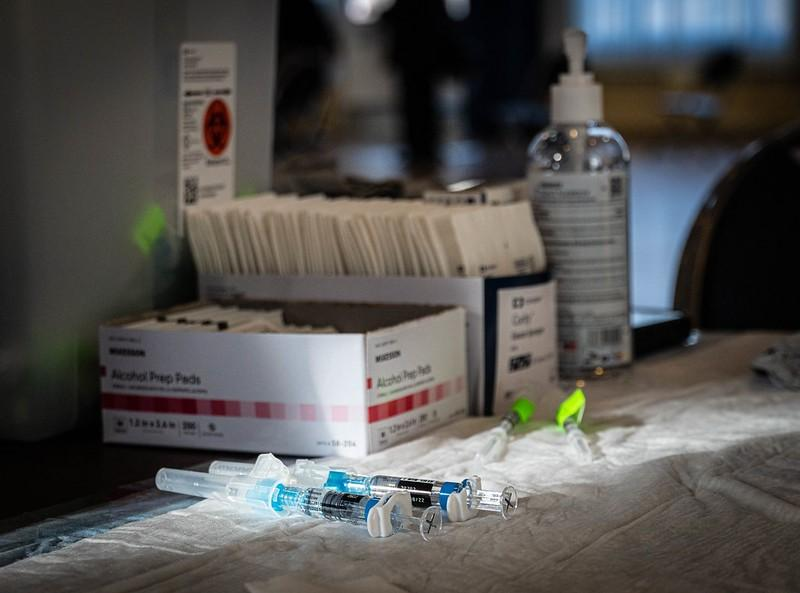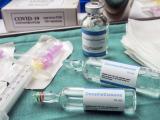One dose of the updated, single-strain COVID-19 vaccine introduced last fall is 38% effective against hospitalization in the 7 to 59 days after receipt and 34% effective at 60 to 119 days in adults with weakened immune systems, yet uptake in this group is low, estimates a study published today in Morbidity and Mortality Weekly Report.
US Centers for Disease Control and Prevention (CDC) researchers led the study, which was based on data from the Virtual SARS-CoV-2, Influenza, and Other respiratory viruses Network (VISION) collected from September 2023 to February 2024. VISION is a multisite electronic health care records–based network that uses a test-negative design to estimate COVID-19 vaccine effectiveness (VE).
In the study, 1,392 case-patients were hospitalized for COVID-19 and tested negative for both respiratory syncytial virus (RSV) and influenza, while 13,194 control patients tested negative for both COVID-19 and flu. The most common immunocompromising conditions among case-patients and controls were solid-organ cancer (36% and 43%, respectively) and other immune conditions or immunodeficiency (38% and 35%, respectively).
Low vaccine coverage in high-risk group
In total, 195 case-patients (14%) had received an updated COVID-19 vaccine dose, compared with 2,401 (18%) of controls. Participants were categorized as having an impaired immune system based on certain diagnoses at hospital release.
One vaccine dose is recommended for all Americans aged 6 months or older, although people with weakened immune systems, who are at higher risk for severe COVID-19 due to their underlying conditions and to decreased immune responses to vaccination, might need additional doses at 2 months or more after the last recommended dose, the study authors noted.
Among those with an organ or stem cell transplant, a group known to be at particularly high risk for severe COVID-19, only 18% had received an updated dose, representing a missed opportunity to prevent severe COVID-19.
VE against COVID-related hospitalization was 38% in the 7 to 59 days after receipt of one dose and 34% at the 60 to 119 days.
"Relatively few persons in this analysis had received an updated COVID-19 vaccine dose, despite those with immunocompromising conditions being at higher risk for severe COVID-19," the researchers wrote. "For example, among those with an organ or stem cell transplant, a group known to be at particularly high risk for severe COVID-19, only 18% had received an updated dose, representing a missed opportunity to prevent severe COVID-19."
The CDC will continue to track the VE of updated COVID-19 vaccines in high-risk groups such as those with impaired immune systems. "All persons aged ≥6 months should receive updated 2023–2024 COVID-19 vaccination; persons with immunocompromising conditions may get additional updated COVID-19 vaccine doses ≥2 months after the last recommended COVID-19 vaccine," the authors concluded.




















